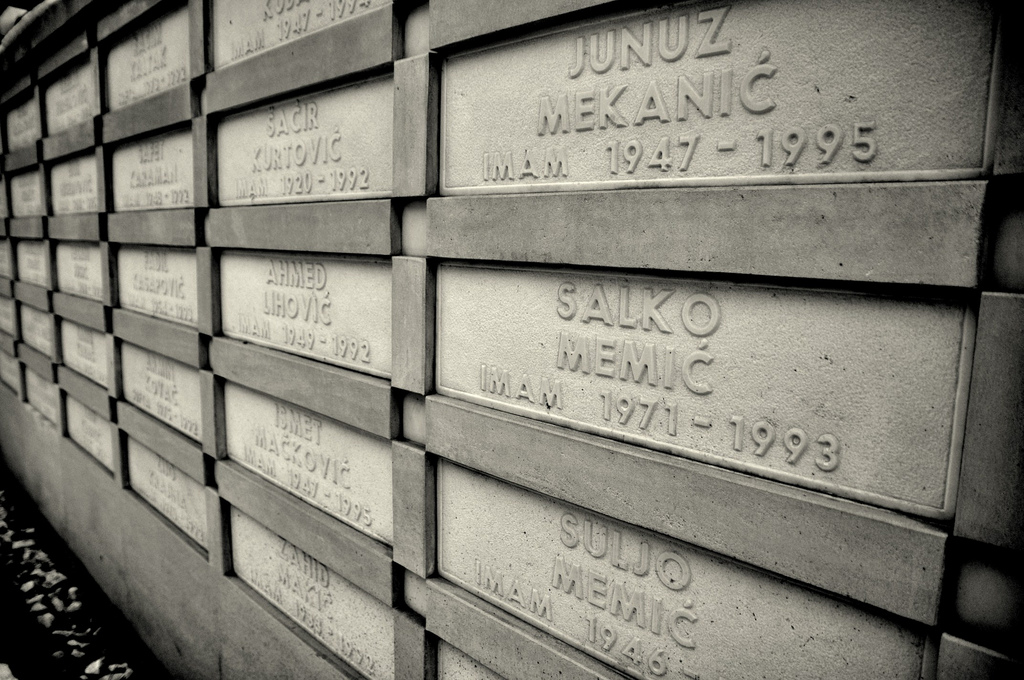Bosnia – I have a dream too
TransConflict hereby presents a response to Jasmin Mujanović’s article, “A new narrative – why a ‘Bosnian Spring’ is Bosnia’s only hope”, calling for a process of reconciliation and steps to foster a spirit of tolerance.
Suggested Reading |
Conflict Background |
GCCT |
By Dusan Babić
Nisvet Dzanko didn’t make it. He lost his final battle to a heinous disease. He will, however, be remembered for his peculiar way of reporting. Dzanko’s spare, simple but thought provoking style was similar to that of Hemingway. There were even some similarities in their way of dressing. For Hemingway’s brand mark woollen sweaters, Dzanko wore a plaid shirt. As one of his colleaguse wittily observed, under Dzanko’s plaid shirt was much, much more of Bosnia and Herzegovina than under fancy jackets, tuxedos and tailcoats of a bunch of domestic politicians and international representatives in the country.
I purposely started this opening paragraph with Dzanko as a modus operandi for how to fight for this country, instead of spreading fantasies and illusions.
I have a dream too, as had Martin Luther King, Jr., while delivering his famous speech in Washington, D.C., on August 28th, 1963, in which he called for racial equality and an end to discrimination. Despite his speech being regarded by many pundits, scholars and social scientists as a decisive moment in American modern history, racial issues remain and are far from being resolved in America and elsewhere. Today’s Bosnia didn’t solve its problems either.
In his opening sentence, Jasmin Mujanović explained that my article, “The war of narratives”, requires “a comprehensive response which I hope will move the conversation about Bosnia and Herzegovina in a genuinely progessive, indeed, revolutionary direction.”
I am also calling for a constructive debates about this country’s future, but to dub it “revolutionary” is nonsense.
I perfectly agree with Jasmin about the brinkmanship and incompetence of political leaders in both of Bosnia and Herzegovina’s entities. I also agree about rampant corruption and cronyism, though this is something that has been widely known for many years.
The point is – who is to blame for it, and who should stop it? The real address is the international community and its seemingly indefinite custodianship in Bosnia and Herzegovina. This status quo fostered a culture of unaccountability, in which domestic politicians are not interested in making sound political decisions as they are aware that they don’t have the final say.
Under such socio-political circumstances, any call for a ‘Bosnian Spring’ means simply spreading illusions. I have a dream too – seeing this country as a normal and functional state. Unfortunately, today’s Bosnia and Herzegovina is a synonym for closed societies and captured minds, deeply-divided along ethnic lines. Even if any social unrest and turbulence caused by widespread poverty is going to happen, it will be mono-ethnically organized. And that’s our sad reality.
If so, the only alternative left is to promote a process of reconciliation and to foster a spirit of tolerance. This is an extremely hard but important task, requiring step-by-step moves. The media should play a crucial role in this process, instead of spreading inflammatory reporting, including hate speech. I should stress here that hate-inspired language has a more damaging impact when disseminated through the public broadcasters; a widespread practice over the years. Professional reporting, combined with more energetic NGOs, can become a success story in reconstructing the multiethnic society that this country badly needs. But it takes a time, and requires much energy and patience. In brief, nothing revolutionary.
Dusan Babić is a Sarajevo-based media and political analyst.



















